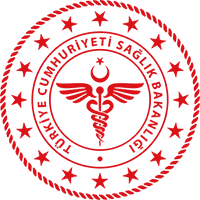Best Pulmonology Hospitals in Ankara
Book appointments with minimal wait times and verified doctor information.

Medicana International Ankara
Ankara, Turkey

Güven Hospital
Ankara, Turkey

Hacettepe University
Ankara, Turkey

Özel Lokman Hekim Akay Hastanesi
Ankara, Turkey

Kırıkkale Tıp Fakültesi
Ankara, Turkey


Lokman Hekim Üniversitesi Ankara Hastanesi
Ankara, Turkey

Özel Sanatoryum Tıp Merkezi
Ankara, Turkey
Questions & Answers on "Pulmonology" (361)
मुझे यह समस्या है क्या करू मेरी उम्र 22 वर्ष हे मुझे ठंड के दिनो मे 5,7 साल से, खांसी बहुत भयंकर और ,सांस फूलना ठंड ज्यादा ,सांस लेते समय सिटी जैसी आवाज आना , समस्या रात को ज्यादा रहती है तेल का खाने से ज्यादा होती है सेक्स करने के दोरान रात को होती हे अर्जुन मीणा
Male | 24
Cough, breathlessness, and voice loss may be the symptoms of a small problem. Such matters are usually about asthma. I would like to suggest that you immediately visit a pulmonologist and find the right treatment for your problem.
Answered on 19th Sept '24
Dr. Shweta Bansal
I inhaled One of those small dots that come from Fire that fly, i dont know how they're called, there Is no Pain, i wanna know if i'll be ok
Male | 13
Small fire dots are known as ember particles. If inhaled, no pain suggests safety. However, irritation or coughing may occur. Drink water, and cough gently for discomfort relief. Seek medical help if breathing difficulties or chest pain arise. For now, you're likely okay.
Answered on 30th July '24
Dr. Shweta Bansal
My boyfriend (age 27) has had this all day every day hacking/throat clearing cough with mucus since January... I've been begging him since to get it checked. He waited 4 months until April & finally went. Well, the chest x-ray came back clear. But then why is he still coughing?? I'm exhausted of this, not knowing what it is, but hearing it all day every day, anxious beyond belief while he claims he's "fine" when it's not normal.
Male | 27
Even though his chest Xray came back clear, ruling out obvious lung abnormalities or infections. STill other causes like allergies, postnasal drip, GERD, asthma, or chronic bronchitis could still be responsible. Encourage him to follow up with a medical professional for further evaluation and testing to identify the underlying cause of his symptoms. Taking his cough seriously and seeking medical attention is important for appropriate treatment and relief.
Answered on 23rd May '24
Dr. Shweta Bansal
I'm suffering from breathing problems since 4 years but that comes and goes for 1 month.. But from last 4 months I'm suffering a lot. I have done all test like echo ecg xray pft all are normal
Male | 21
Answered on 11th July '24
Dr. N S S Gauri
sir i am mauma For about 6-7 months, I have cold, cough and fever except for 10 days in 1 month
Female | 20
Oh no, now you have been in this bad condition for quite a long time! Having problems like coughing, fever with episodes of normal conditions, and sore throat can really make your life hard. Viruses are the main cause of these symptoms in life. Keep your body hydrated, and take breaks, just eat nutritious meals. Maintain a certain distance and instruct people to cover their coughs and sneezes. If it persists or worsens, consulting a pulmonologist is an essential thing to do.
Answered on 6th Nov '24
Dr. Shweta Bansal
I'm suffering with sudden breathless at night
Female | 24
Nighttime breathing troubles can feel frightening. Airways narrowing from asthma is one potential cause, making inhalation difficult. Heart conditions and anxiety disorders are other possibilities leading to this issue. Consulting a pulmonologist is vital for precise diagnosis and suitable treatment recommendation, enabling improved nocturnal respiration.
Answered on 26th Sept '24
Dr. Shweta Bansal
Facing health issues severe chest pain , tightness and breathing problem done x ray. Shows bravascilar prominent in lung field done ct scan show focal fibroatelectatic in right lobe and middle right lobe and lingula done pulmonary function test it shows breathing patterns changes and doctor says it's normal you're fine while. I'm not feeling well
Female | 24
The focally fibroatelectatic area seen on the x-ray of your right lung may be causing the symptoms you are having. Although irregular breathing patterns have been observed, pulmonary function tests are normal. This may happen because of trapped air in your lungs. Consult a pulmonologist and discuss your test results so that further evaluation and treatment can be done.
Answered on 14th Nov '24
Dr. Shweta Bansal
Hello, i am Sasank from India. I have Asthama more than 8 years. Symptoms are Whenever i get asthama i get lite fever, body pains, headache, cough, chest pain, weakness, very difficult in breathing. How i get asthama:- When i drink or eat something cold, dust, cold weather, any citrus fruits, exercise or running and done a heavy work etc etc. When i uses tablets it lasts for a day or other wise if i dont use tablets its last for 3-5 days I use:- Hydrocortisone tablet and Etofylline + Theophylline 150 tablet
Male | 20
Answered on 19th June '24
Dr. N S S Gauri
I have cold fever and my right side chest just paining little bit.. I want some medicine to suggest me for recover..
Male | 30
A fever and chest pain suggest a chest infection. Viral or bacterial infections often cause this. Take ibuprofen for pain relief. Acetaminophen helps reduce fever. Drink plenty of fluids. Get enough rest. If symptoms don't improve or worsen, see a pulmonologist for evaluation. They can determine the cause and proper treatment.
Answered on 27th Aug '24
Dr. Shweta Bansal
I have played national matches in boxing and wrestling. I had severe chest pain in May. If I show in the hospital, in the x-ray, it will show water in the chest, after fluid tapping, Tb will be found in that water, I was under a lot of mental stress. Because I have to take care of my house. I have been taking the medicine given by the doctor since one month, I have started boxing and wrestling training, I am feeling a little better but I am not feeling any strength in my body, can I take creatine to get strength? Please help me a little
Male | 26
Pneumothorax (TB) might be the water inside your chest. This is due to the fact that the immune system, when it is weak, can bring on the symptoms such as chest pain and tiredness. While taking medications as prescribed should be your priority, do not take creatine without your doctor’s approval because it may worsen your condition. However, for now, make sure you are resting enough, eating properly, and gradually getting back into your regular training routine.
Answered on 6th Aug '24
Dr. Shweta Bansal
I am 41 year old. I recently had cough and cold then I took some drugs. Though the cough is gone, but for some days now anytime I cough my breath ceases
Male | 41
According to the research you've put forward, it is likely that you might have a disease known as asthma. Wheezing can occur during a cough when asthmatic patients have trouble breathing. This is a result of opened, inflamed, and tightened air tubes. In addition to coughing, other symptoms may include wheezing and chest tightness. One of the ways to cope is by staying away from irritants such as smoke or dust.
Answered on 10th Aug '24
Dr. Shweta Bansal
I am 18 years old and my question is can I share room TB patien like my uncle
Male | 18
Tuberculosis (TB) is a serious infection that mainly affects the lungs. Symptoms include coughing, chest pain, weight loss, and fatigue. TB is a contagious disease that spreads through the air when an infected person coughs or sneezes. Your uncle should stay in his room until he finishes his treatment, as TB can spread to others. To prevent this, certain measures should be followed. It's important to follow your doctor’s advice to protect both yourself and your uncle.
Answered on 16th Oct '24
Dr. Shweta Bansal
I haven't asthma flare up and I don't see my primary for 2 weeks is there anyway that I'm able to get a prescription for my prednisone for my wheezing and cough until then. I'm at Kroger pharmacy in River oaks, Gray street, Houston Texas.
Male | 52
You can go to see a pulmonologist or an allergist, who may be the appropriate professionals to see the wheezing and cough related to the asthma attack. They would be able to examine your condition and write them a prescription for prednisone if it is necessary.
Answered on 23rd May '24
Dr. Shweta Bansal
Hi. I have bad chest infection there pure green stuff coming up all the time with very bad taste to my mouth and head .. I am on tablets 3 days for this but I feel there no end to the chest infection and the green stuff that is coming up I am 43 years male and I take to inhalers aday I feel like it’s lying in my wind pipe at times
Male | 43
It seems you develop a very substantial respiratory infection and you have green-colored phlegm discharge, almost always suggesting that ongoing infection is present. Even though drugs usually need time to start working, the symptoms that persist might be serious. Viscid or molasses-like mucus, which is hard to breathe in and is very uncomfortable as well, you should be properly hydrated; if necessary, a humidifier can help breathing. When in the next few days the symptoms of the condition do not reduce, or you, on the contrary, feel yourself worse, please see the pulmonologist.
Answered on 26th Dec '24
Dr. Shweta Bansal
Starting about 6 days ago, I began having a swollen and sore throat (only painful and swollen on right side.) Then I started having coughing fits, coughing up stuff, and having chest pains. My nose also goes back and forth from runny to stuffy. I’ve been taking mucus relief medicine, throat spray, nasal congestion spray, and Tylenol. Nothing is working. What’s wrong with me
Female | 21
You might have a respiratory infection, which is a viral infection. The infection could result in a sore throat, coughing, chest pain, and nasal congestion. The use of mucus relief, throat spray, and nasal congestion spray is good for symptom relief, but if it has not improved, you may need to see a pulmonologist for further evaluation and possibly antibiotics. The doctor can do this if there is any bacterial infection that may be present.
Answered on 21st Oct '24
Dr. Shweta Bansal
Remedy for severe asthmatic attack
Female | 38
Feeling an asthma attack is frightening. Your breaths shorten, wheezing comes, coughing increases, tightness squeezes your chest. Airways swell, becoming narrow during attacks. To ease severe attacks: inhale from a rescue inhaler, sit upright, stay calm. If symptoms don't improve quickly, seek emergency care immediately.
Answered on 23rd July '24
Dr. Shweta Bansal
Tuberculosis recording information my tb gold report is postive so please help me
Male | 18
This suggests that you might have come in touch with the microbes that initiate tuberculosis infection. I would recommend that you see a pulmonologist, such as tuberculosis. Medical attention and following the physician-recommended treatment plan are important to combat tuberculosis.
Answered on 23rd May '24
Dr. Shweta Bansal
I have a hole in my septum should I see a doctor I have no breathing problems but I'm afraid it could get worse
Male | 32
Answered on 11th Aug '24
Dr. N S S Gauri
Sever condition having different disease cough fever respiratory disorder sowling whole body thort lympemic
Male | 2.5 year
It sounds like you are experiencing a combination of symptoms such as severe cough, fever, respiratory difficulties, and body discomfort. These could be caused by various issues, including infections, allergies, or other medical conditions. It's crucial to monitor your symptoms closely. Staying hydrated, resting, and using over-the-counter medications may help alleviate discomfort. However, given the severity of your symptoms, I strongly recommend you consult a pulmonologist for a thorough evaluation and tailored treatment.
Answered on 9th Jan '25
Dr. Shweta Bansal
I have asthma but no inhaler and I want to start track and field in my school. What should I do?
Female | 14
Sports if you are asthmatic and lack of inhaler can turn out to be a dangerous affair. Asthma is a disease that can cause breathing difficulties, coughing, and compactness of the chest among other things. Physical activities can provoke an asthma attack. In your situation, it would be dangerous to do track and field without an inhaler. Warn your parents or school nurse about your asthma and request them to help you get an inhaler before beginning track and field.
Answered on 7th Oct '24
Dr. Shweta Bansal
Get Free Treatment Assistance!
Fill out this form and our health expert will get back to you.

